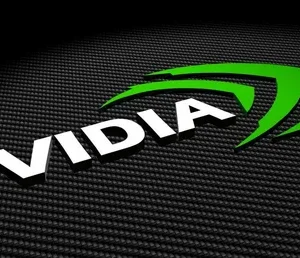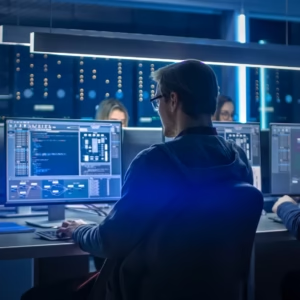Introduction
Picture this: You have a CCTV camera installed to keep your home or business safe. It’s supposed to be your eyes when you can’t be there. But what if someone else is watching through those very same cameras? Creepy, right? Understanding how hackers gain access to CCTV cameras is crucial in ensuring our surveillance systems remain secure. Let’s dive into this topic and uncover the vulnerabilities and the tactics hackers use.
Understanding CCTV Systems
What is a CCTV Camera?
Closed-circuit television (CCTV) cameras are a type of video surveillance technology. They’re used to monitor and record activity in various settings, from homes to businesses and public spaces. Unlike broadcast television, CCTV signals are not openly transmitted but are monitored for security and surveillance purposes.
Components of a CCTV System
A standard CCTV system includes cameras, a digital video recorder (DVR) or network video recorder (NVR), a monitor, and cables for wired systems or a router for wireless systems. Each component plays a role in capturing, storing, and displaying video footage.
Types of CCTV Cameras
There are several types of CCTV cameras, including dome cameras, bullet cameras, PTZ (pan-tilt-zoom) cameras, and more. Each type has its unique features and is suited for different surveillance needs.
Common Vulnerabilities in CCTV Cameras
Default Passwords
One of the most glaring vulnerabilities in CCTV cameras is the use of default passwords. Many manufacturers ship their products with default login credentials, and users often forget to change them.
Unsecured Networks
CCTV cameras connected to unsecured networks are easy targets for hackers. If your network isn’t properly secured, it’s like leaving your front door wide open.
Outdated Firmware
Running outdated firmware on your CCTV cameras can leave them vulnerable to known exploits. Manufacturers regularly update firmware to patch security holes, so keeping your system updated is vital.
Poor Physical Security
If your CCTV camera is accessible, someone can tamper with it physically. Ensuring cameras are out of reach or protected can prevent unauthorized access.
How Hackers Exploit CCTV Vulnerabilities
Brute Force Attacks
In a brute force attack, hackers use software to try thousands of password combinations until they find the correct one. This method is particularly effective if default or weak passwords are used.
Exploiting Default Passwords
Hackers often use default passwords to gain access. They simply look up the default credentials for a particular model and try them out. If the user hasn’t changed the password, the hacker gets in.
Man-in-the-Middle Attacks
In this type of attack, a hacker intercepts communication between the CCTV camera and the DVR or NVR. They can alter the data being sent, allowing them to view or even manipulate the footage.
Firmware Vulnerabilities
Hackers exploit known vulnerabilities in outdated firmware. By identifying and exploiting these vulnerabilities, they can gain control over the camera or the entire CCTV system.
Real-Life Examples of CCTV Hacks
Famous CCTV Camera Hacks
One notable example is the 2016 Mirai botnet attack, where hackers gained control of thousands of IoT devices, including CCTV cameras, to launch a massive DDoS attack. This incident highlighted the vulnerabilities of connected devices.
Consequences of These Breaches
The consequences of CCTV hacks can range from invasion of privacy to facilitating crimes. In some cases, hackers have used compromised cameras to spy on individuals or gather information for further attacks.
Preventative Measures for CCTV Security
Changing Default Passwords
The first step in securing your CCTV camera is changing the default password to something strong and unique. Use a combination of letters, numbers, and special characters.
Securing Your Network
Ensure your network is secured with strong encryption, like WPA3, and use a complex password for your Wi-Fi. This helps protect your CCTV cameras from unauthorized access.
Regularly Updating Firmware
Regularly check for and install firmware updates provided by the manufacturer. These updates often include security patches that protect against known vulnerabilities.
Physical Security Measures
Place cameras in locations that are hard to reach or tamper with. Use protective casings if necessary to prevent physical interference.
Advanced Security Practices
Implementing Strong Encryption
Use strong encryption methods for your CCTV data transmission. This ensures that even if data is intercepted, it cannot be easily deciphered.
Using VPNs for CCTV Access
A VPN (Virtual Private Network) adds an extra layer of security by encrypting the data traffic between your CCTV cameras and the viewing device, making it harder for hackers to intercept.
Employing Intrusion Detection Systems
Intrusion detection systems (IDS) can help monitor and alert you to unauthorized access attempts on your network, allowing you to take swift action.
Conducting Regular Security Audits
Regularly auditing your CCTV system for vulnerabilities helps you stay ahead of potential threats. Hire cybersecurity professionals to perform these audits and provide recommendations.
The Role of Cybersecurity Professionals
Importance of Hiring Experts
Cybersecurity professionals have the expertise to identify and mitigate security risks in your CCTV system. Hiring them ensures your system is robust against attacks.
How Professionals Secure CCTV Systems
Professionals use a combination of methods, including strong passwords, encryption, network security, and regular updates to ensure your CCTV system remains secure.
Legal and Ethical Implications
Legal Consequences of Hacking
Hacking into CCTV cameras is illegal and punishable by law. Consequences can include fines, imprisonment, and other legal actions.
Ethical Considerations in Cybersecurity
Ethical hacking involves legally testing systems for vulnerabilities to improve security. It’s essential for maintaining trust and ensuring the safety of surveillance systems.
Future of CCTV Security
Emerging Technologies
Technologies such as AI and machine learning are being integrated into CCTV systems to enhance security features, such as anomaly detection and automated threat response.
Predictions for Future Threats
As technology evolves, so do the tactics of hackers. Future threats may involve more sophisticated attacks, requiring continuous advancements in security measures.
Conclusion
Securing your CCTV cameras is essential to protect your privacy and prevent unauthorized access. By understanding the common vulnerabilities and how hackers exploit them, you can take proactive steps to safeguard your surveillance system. Regular updates, strong passwords, and securing your network are simple yet effective measures. Remember, staying informed and vigilant is the key to keeping your eyes only on what matters.
FAQs
What should I do if my CCTV camera gets hacked?
If you suspect your CCTV camera has been hacked, disconnect it from the network immediately. Change all passwords, update the firmware, and consult a cybersecurity professional to assess and fix the breach.
How can I tell if my CCTV camera has been hacked?
Signs of a hacked CCTV camera include unusual movements, changes in settings, blinking LED lights when not in use, or unfamiliar IP addresses accessing the system.
Are wireless CCTV cameras more vulnerable than wired ones?
Wireless CCTV cameras can be more vulnerable due to potential weaknesses in Wi-Fi security. However, both types can be secure if proper measures, like strong passwords and encryption, are implemented.
Can all types of CCTV cameras be hacked?
Yes, any CCTV camera, regardless of type, can be hacked if not properly secured. It’s crucial to implement security best practices for all types.
What legal actions can I take against a hacker?
You can report the hacking incident to law enforcement and provide any evidence you have. Legal actions may include pressing charges, which can result in fines, imprisonment, or other penalties for the hacker.





